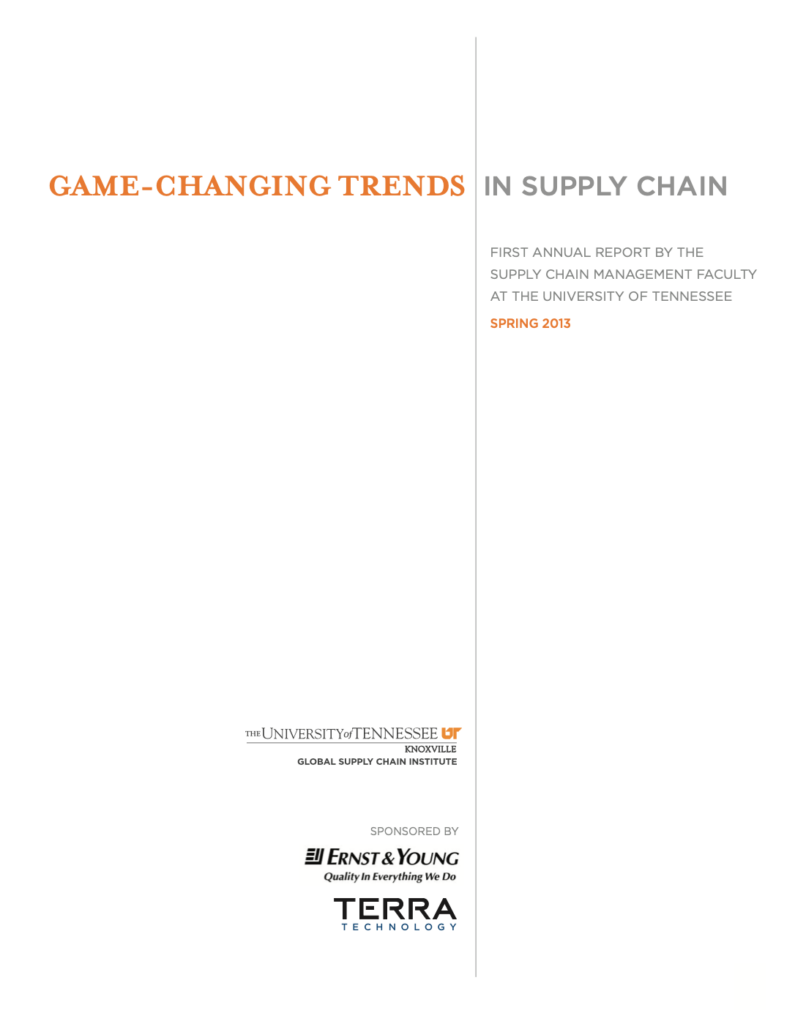Industry-Focused White Papers
Researched and written by the University of Tennessee’s highly regarded business faculty, GSCI white papers explore trends, challenges, and innovative approaches to supply chain management. Research from these white papers has appeared in leading business and industry publications such as DC Logistics, Forbes, Harvard Business Review, Supply Chain Management Review, and The Wall Street Journal.
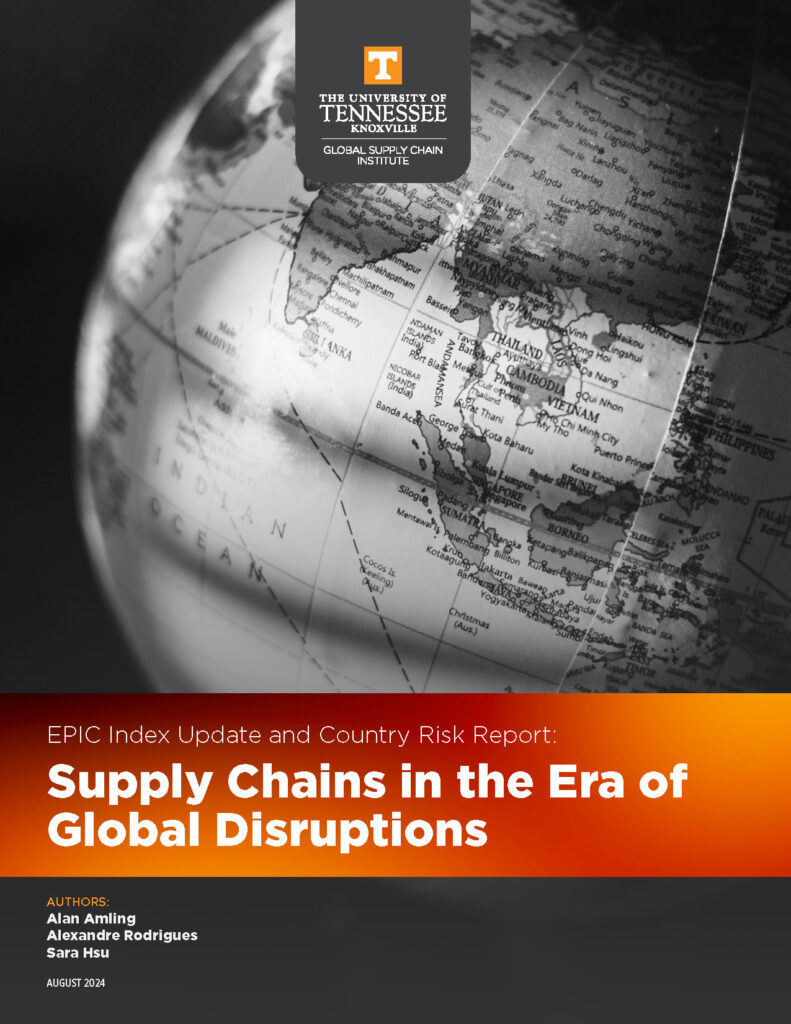
EPIC Index Update and Country Risk Report
Managing Risk in an Era of Global Supply Chain Disruptions
Present-day global supply chains face unprecedented risk. From environmental and climate-driven disruptions to geopolitical and regulatory requirements, today’s supply chain professionals must juggle economic and financial challenges as well as a variety of operational and technological disruptions. COVID-19 only highlighted the critical end-to-end supply chain risk mitigation challenges that supply chain managers have dealt with for decades. This white paper provides critical insights into modern-day global supply chain risks and an update to the EPIC Index originally published in 2014. Read on to see how this framework helps businesses assess supply chain readiness across economic, political, infrastructural, and competence perspectives.

Climate Change Risk and Supply Chains
How to Manage and Mitigate Climate-Related Supply Chain Challenges
With the frequency and intensity of extreme weather events increasing, supply chain managers and leaders face significant challenges. Climate change and recent natural disasters, such as Hurricane Ian, have caused substantial disruptions in operations and logistics, highlighting the vulnerability of supply chains. To address these supply chain challenges, professionals must ensure the resilience of their current supply chain operations globally while adopting smart future-proof strategies. This white paper provides valuable insights into climate change risk mitigation as well as a Climate Change Index to help your team make informed strategic decisions.

Leadership Development for Tomorrow’s Supply Chain Planning Professionals
Supply Chain Training and Talent Considerations for the Next Generation of Leaders
Supply chain planning is central to the strategic initiatives and goals of modern-day businesses. The demand for competent supply chain professionals is higher than ever. Demand will only grow as supply chain leadership leans heavily on planners to manage change, navigate new technologies, and manage ambiguity with flexibility and skill. This white paper is the product of a year-long engagement with senior supply chain leaders. Its key findings and core competencies provide businesses with the tools to ensure success in developing supply chain planning talent for the future.
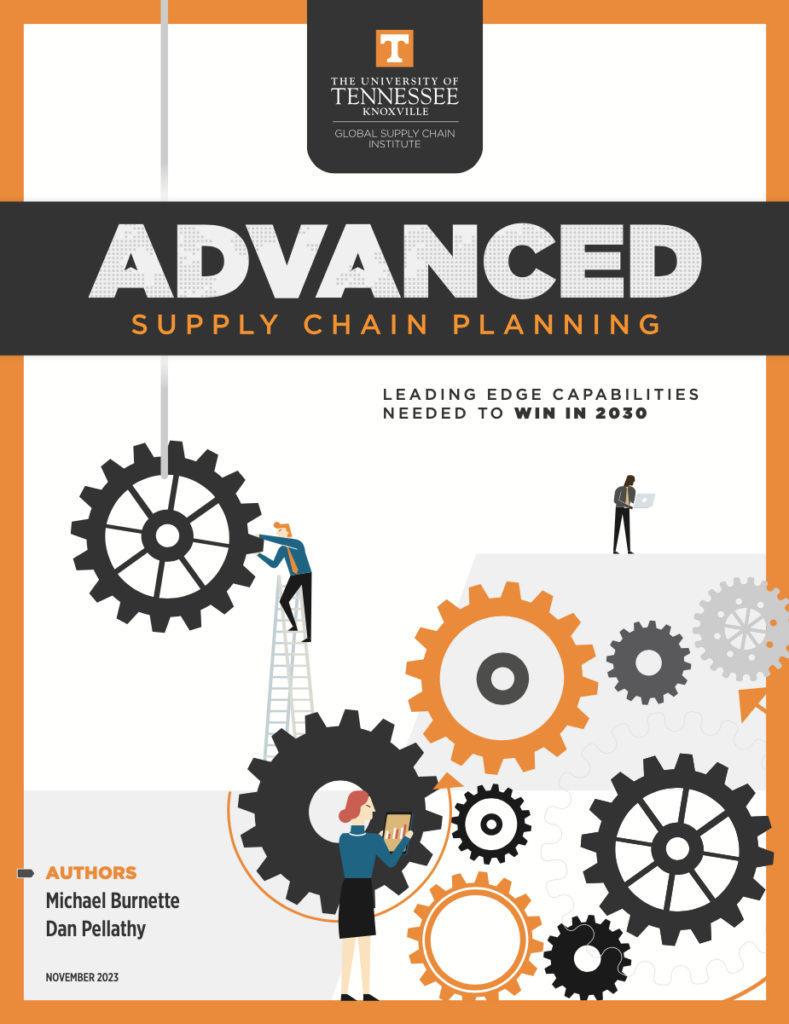
Advanced Supply Chain Planning: Leading Edge Capabilities for Future Success
A Must-Read for Today’s Supply Chain Planning Manager
For the past decade, companies have faced unprecedented supply chain challenges. In response, supply chain planning emerged as a critical priority for business leaders responding to pressures and leading transformation. This white paper explores how companies can develop a robust supply chain planning foundation today and presents seven advanced planning capabilities they will need for competitive success in the future.
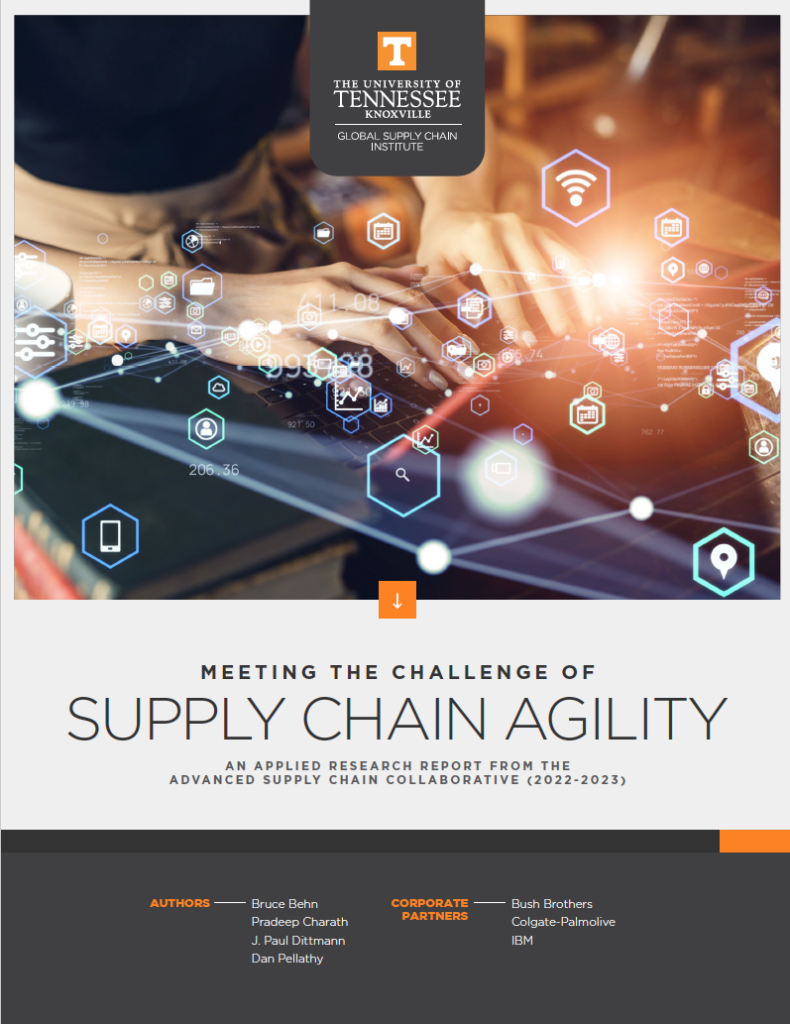
Meeting the Challenge of Supply Chain Agility
An Introduction to Supply Chain Agility and the Challenges Facing Today’s Companies
Leading companies are pursuing agile strategies, investing in digital, process, and physical capabilities that enable a rapid response to change. However, most organizations either misunderstand or rarely realize supply chain agility to their benefit. This applied research report was conducted in collaboration with Bush Brothers, Colgate-Palmolive, and IBM and introduces the concept of supply chain agility for business leaders and industry professionals. It provides a deep dive into the central challenges managers face in enhancing supply chain agility and offers practical advice for overcoming these obstacles.

Last Mile, Reverse Logistics, and the New World Order in E-Commerce Delivery
How to Deliver on the Modern Consumer's Demands
According to Shopify, “a successful last mile experience makes up 53% of total supply chain costs and comes with its own set of challenges.” While challenges associated with last mile logistics are high, consumer expectations are higher. Following the global shake-up in shipping and supply chain management caused by COVID-19, consumers now expect shipped goods to arrive fast and free. This has forced supply chain leaders to innovate, pivot, evolve e-commerce methods, and deliver in ways they hadn’t before. To help business professionals better understand the shifting last mile and reverse logistics landscape, researchers working with the Advanced Supply Chain Collaborative investigated this area as society’s emerged from the pandemic.
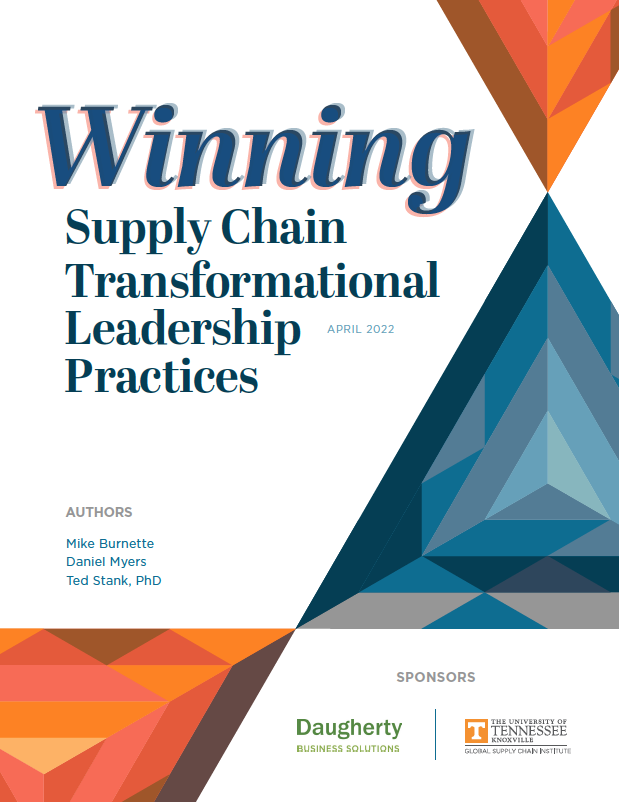
Modern Day Best Practices from Supply Chain Leaders
Winning Supply Chain Transformational Leadership Practices
The COVID-19 pandemic brought unprecedented supply chain disruptions. But with these disruptions came increased recognition of the value provided by supply chain leaders, supply chain agility, and evolving supply chain best practices. This white paper and video illustrate what leading organizations are doing to succeed among new challenges, increased competition, and ever-changing dynamics. Inside are relevant supply chain best practices from top supply chain leaders, pulled from research and in-depth interviews with five global supply chain experts who have demonstrated transformational leadership in their industries and organizations.
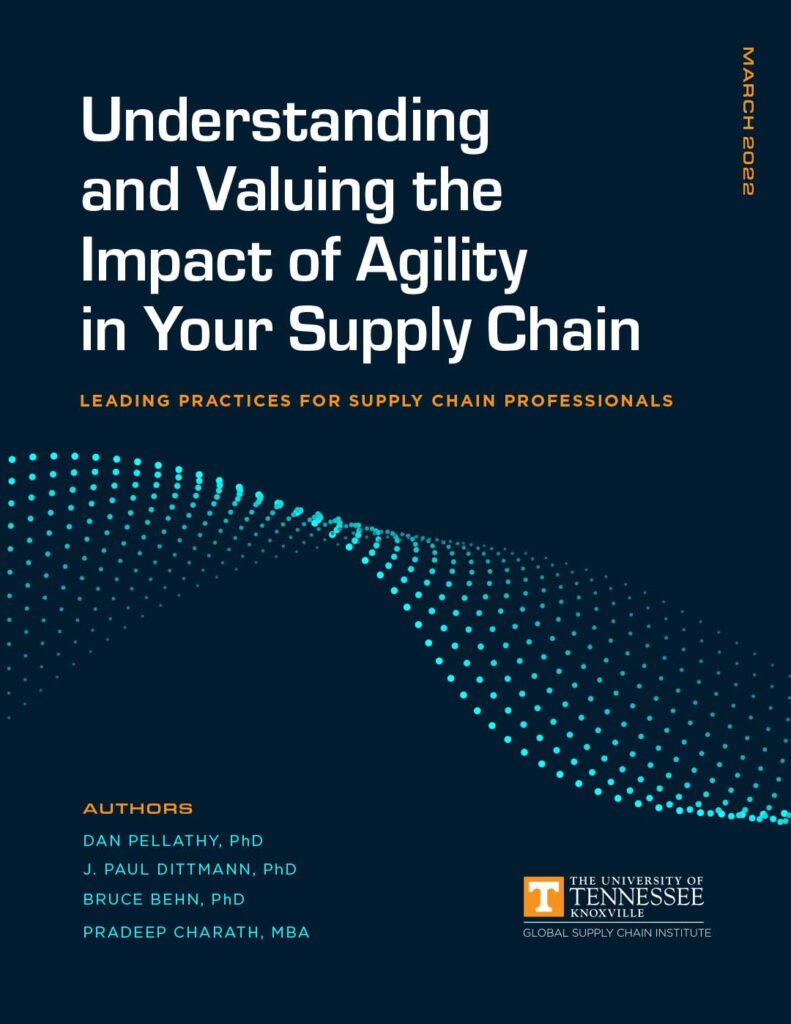
How Investing in Supply Chain Agility Pays Off
Understanding and Valuing the Impact of Agility in Your Supply Chain
Everyone remembers the extreme toilet paper shortages of the COVID-19 pandemic. Even today, shortages of new vehicles, supplies for home renovations, or baby formula are explained away as supply chain issues. Frustrating and all too common, these supply chain issues affect consumers and companies alike. So how can organizations and supply chain leaders nimbly navigate these disruptions? This white paper has the answer.
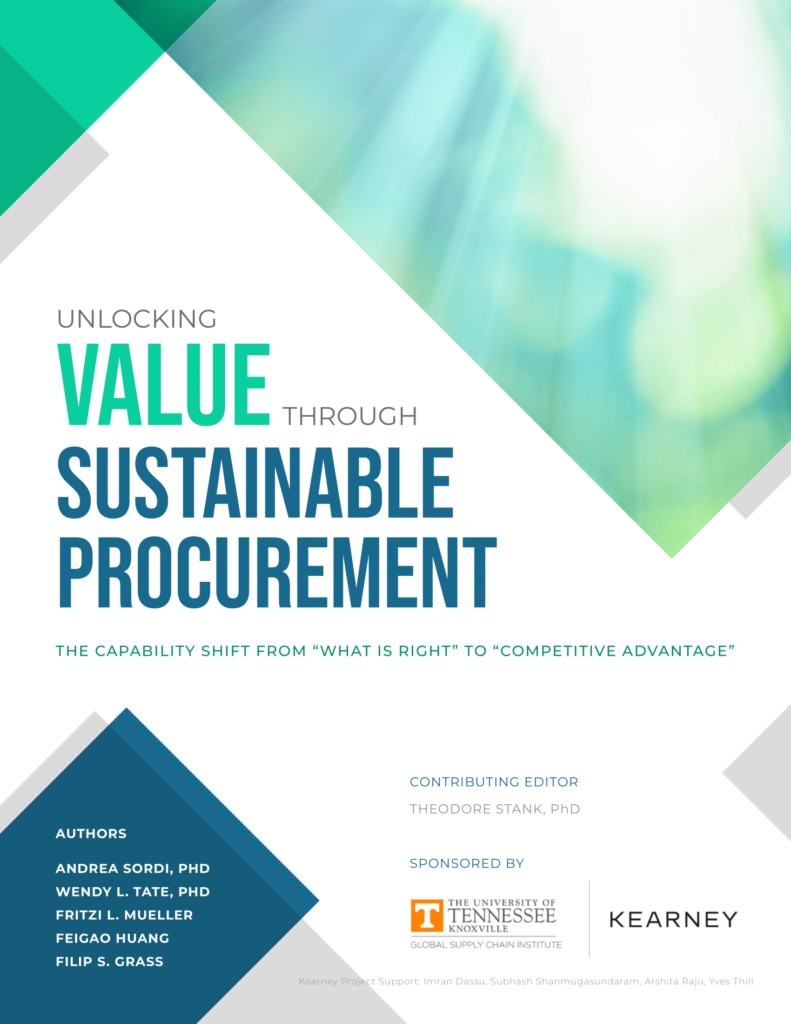
A Framework for Sustainable Procurement and Supply Chain Management
Unlocking Value Through Sustainable Procurement
Over the years, corporate sustainability has become increasingly important. In addition to being a competitive necessity due to rising consumer demand, corporate sustainability can be a valuable recruitment tool for talent-seeking, purpose-driven corporate cultures, as well as a business practice that boosts innovation and reduces costs. But how can companies achieve sustainability when synchronization and collaboration across the supply chain can be so difficult? This white paper provides a seven-pillar framework for sustainable procurement and supply chain management and guidance on how procurement executives can be successful, in-house sustainability catalysts.
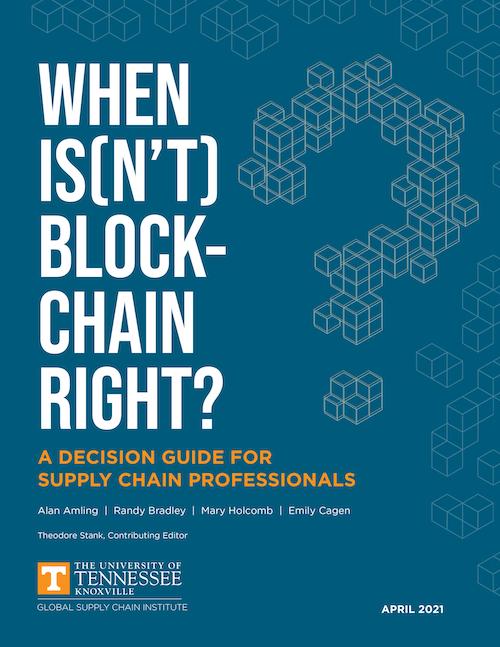
Blockchain 101: When Is(n’t) Blockchain Right?
A Decision Guide for Supply Chain Professionals
Blockchain has become an industry buzzword, with blockchain for supply chain touted as a game-changer for business operations. Estimates suggest blockchain technology will generate over $3.1 trillion in new business by 2030. But, if the mention of blockchain leaves you scratching your head (or your colleagues rolling their eyes), you’re not alone. Challenging enough to understand its own, Blockchain ROI is even harder to determine. This white paper explains blockchain 101 technology, its potential ROI, and the costs and benefits of application. Authors also present lessons from blockchain pioneers, like Amazon, Mondelez International, and Pfizer. Provided with the paper is a toolkit for effectively determining if blockchain for supply chain is feasible for your company.
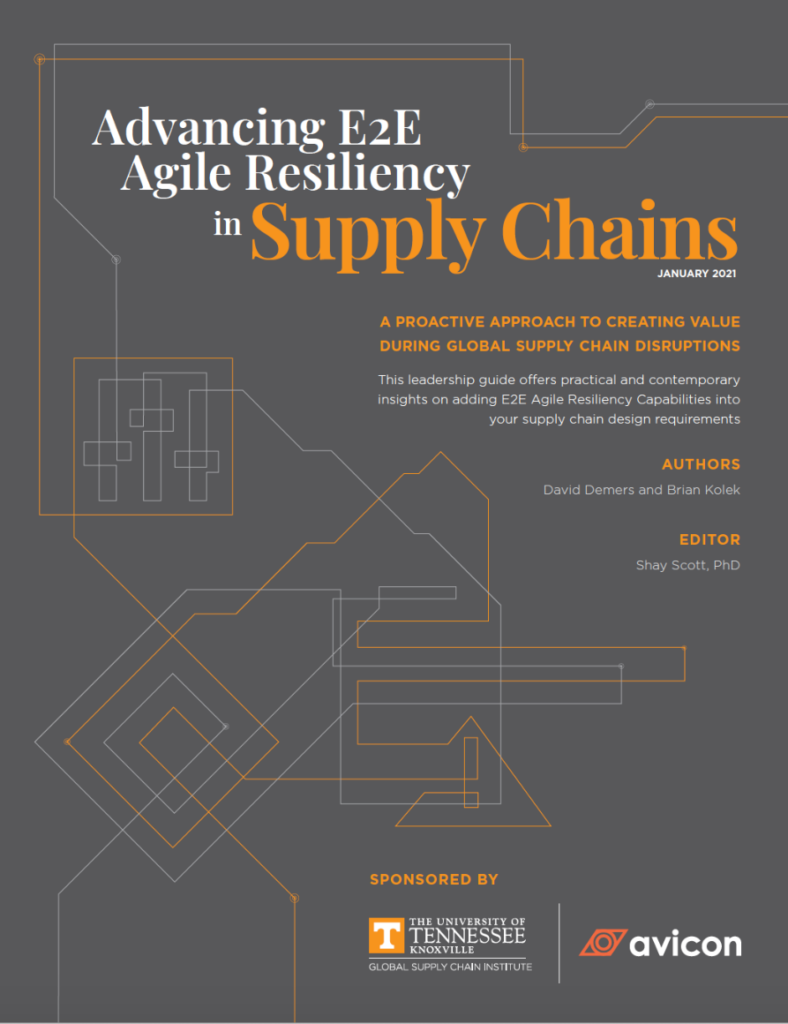
Supply Chain Design: Achieve Resiliency with End to End Supply Chain Agility
Advancing E2E Agile Resiliency in Supply Chains
Supply chain leaders have been through the wringer in recent years. While it’s easy to blame recent supply chain issues on COVID-19, experts warn that risks, uncertainties and supply chain disruptions will continue to challenge economies, marketplaces, and consumers alike. It’s never been more important to 1) evaluate how vulnerable your organization is to supply chain disruptions, and 2) add end to end supply chain considerations and agile resiliency capabilities into your supply chain design. This white paper offers practical “how-to” guidance for advancing and modernizing your approach.
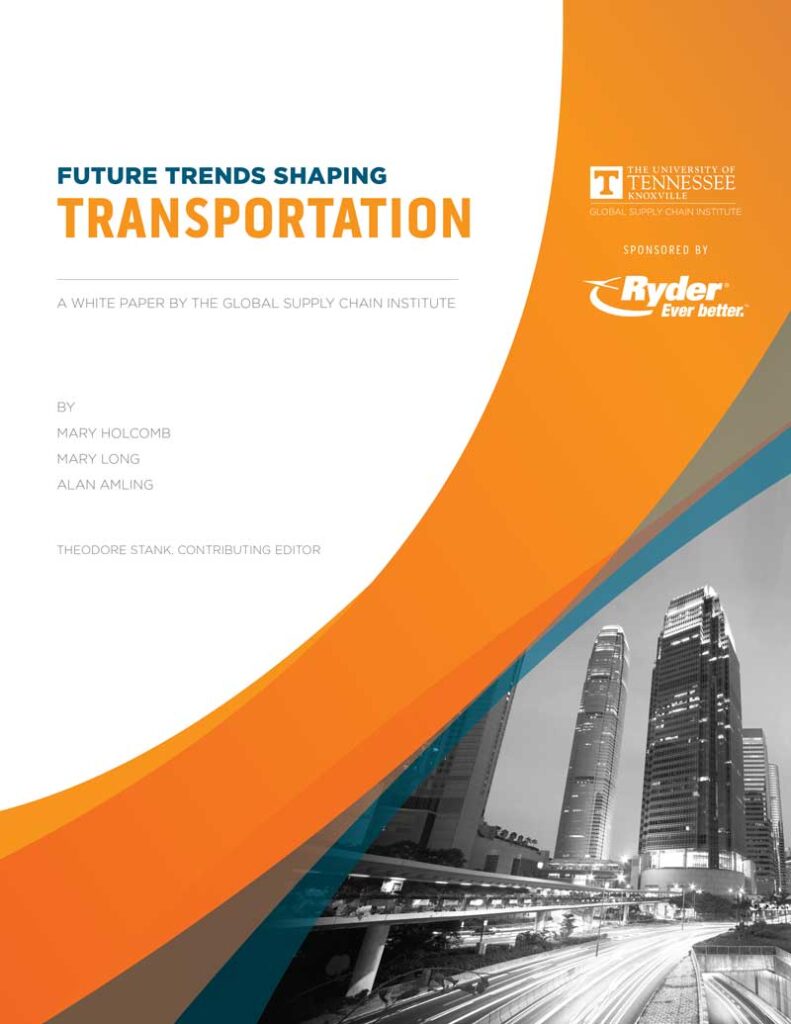
Modern Takes on Transportation in Supply Chain Management
Industry Trends for Global Supply Chain Leaders
Transportation is the chief agent of motion in global supply chains. Ensuring continuous connectivity and visibility into where products are once they’ve shipped (i.e., end-to-end supply chain visibility) is a great challenge highlighted by the COVID-19 pandemic. This white paper explores best practices, challenges, and predictions for transportation in supply chain management, as well as solutions for supply chain leaders when it comes to evolving transportation industry trends.

End to End Supply Chain Synchronization
Best Practices for Orchestrating a Winning Strategy
Successfully executed end to end supply chain strategies drive value by verifying that all supply chain activities, processes, and transitions are synchronized to the core business driver of the benchmark company. Everyone in the organization is on the same page, with supply chain leaders acting as orchestra conductors. However, successful implementation of end to end supply chain synchronization requires several elements for readiness. First and foremost of these is 100% commitment from business leadership. Download this white paper to explore what else you’ll need to build your winning strategy. Includes a toolkit, case study, best practices, benchmarking data, and more.
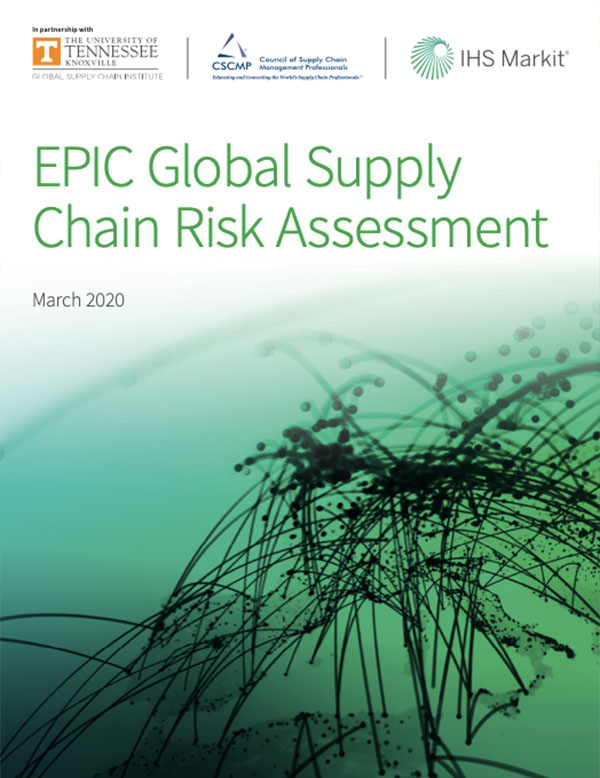
EPIC Supply Chain Framework
A Global Risk Assessment & Readiness Resource
In an increasingly unpredictable world, business leaders can better assess risk by using the EPIC Report and associated EPIC Supply Chain Framework, which measures supply chain readiness from four perspectives: Economy (E), Politics (P), Infrastructure (I), and Competence (C). The authors of this white paper evaluated 64 countries from 10 geographic regions, with a particular focus on how supply chain leaders can manage risk and plan, prepare, and measure supply chain capabilities both globally and for their organizations. This report is must-read information for today’s supply chain decision-makers.
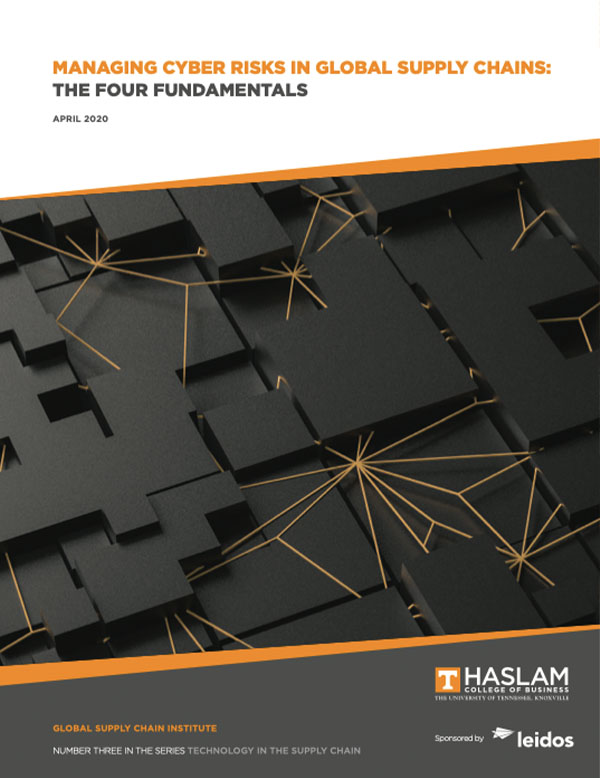
Supply Chain Risk Management
Four Fundamentals to Managing Cyber Risks in Global Supply Chains
Managing cyber risks within global supply chains is one of the top challenges facing today’s supply chain managers. Yet a key insight from interviews conducted with more than 30 cyber experts for this white paper was that most supply chain leaders do not have a clear understanding of how to reduce risk. Industry leaders have clear cybersecurity strategies and build cybersecurity-centric cultures. If your company needs to shift to a solid supply chain risk management strategy, this white paper is for you.

Diversity and Inclusion in Supply Chain Management
Young Professional Women’s Perspectives on Supply Chain Diversity and Inclusion
More than ever before, supply chain management is center stage. The increased scrutiny and complexities of global supply chains highlights the need for organizations to onboard, develop, and maintain fantastic talent. Research shows that companies with more diverse management teams have 19% higher revenue due to innovation. Yet only 15% of supply chain organizations are led by female executives. This white paper shares the experiences of new female supply chain professionals to illustrate opportunities for supporting women in the workplace. It also provides a framework for building more gender-equitable workplaces.

Supply Chain Best Practices for Building a High Performance Organization (HPO)
Tips for Leaders and Teams
Both early career supply chain professionals and senior supply chain leaders understand that their work is directly linked to company success. People are the heart of the supply chain. So how do you build a high performance organization (HPO) where every member of the supply chain team meets and exceeds their goals? In this paper, we explore supply chain management best practices that answer that question.

End-to-End Supply Chain Planning Frameworks, Concepts, and Best Practices
"End-to-End Supply Chain Planning Framework and Key Concepts: Why Planning is the ‘Brains’ of the Supply Chain”
In a complex global supply chain environment, the role of a supply chain planner cannot be underestimated. Increasingly, business executives are recognizing the importance of supply chain planning, with an urgency to improve systems, staffing, and processes. Supply chain leaders are adding dedicated, highly qualified supply chain planners to eliminate waste as well as to lead and manage processes that will more efficiently deliver on corporate goals. This white paper provides supply chain planning frameworks, concepts, research, and best practices for planning as one of the essential roles of supply chain management.
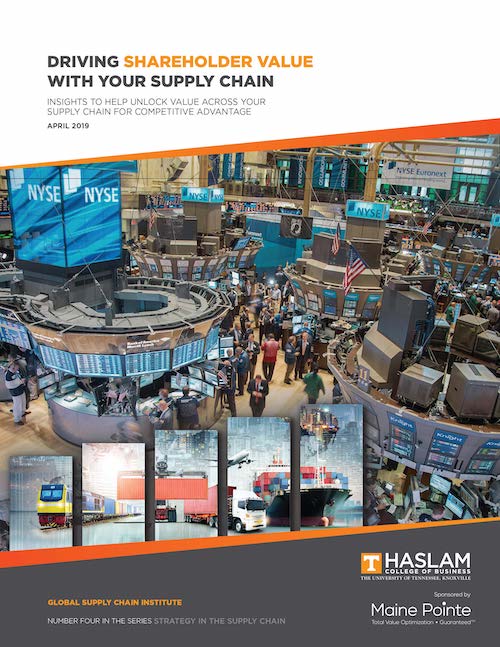
Driving Shareholder Value with Your Supply Chain Strategy
Gain a Competitive Advantage with Supply Chain Best Practices
Chief executives know economic profit drives shareholder value, and savvy business leaders are confident that supply chain excellence is critical for gaining a competitive edge, both operationally and financially. However, some businesspeople do not understand the direct link between supply chain excellence and shareholder value. This white paper explores elements of this link, helping you acquire a basic understanding of supply chain best practices and learn how organizations use supply chain innovation to generate cash to grow their respective businesses.
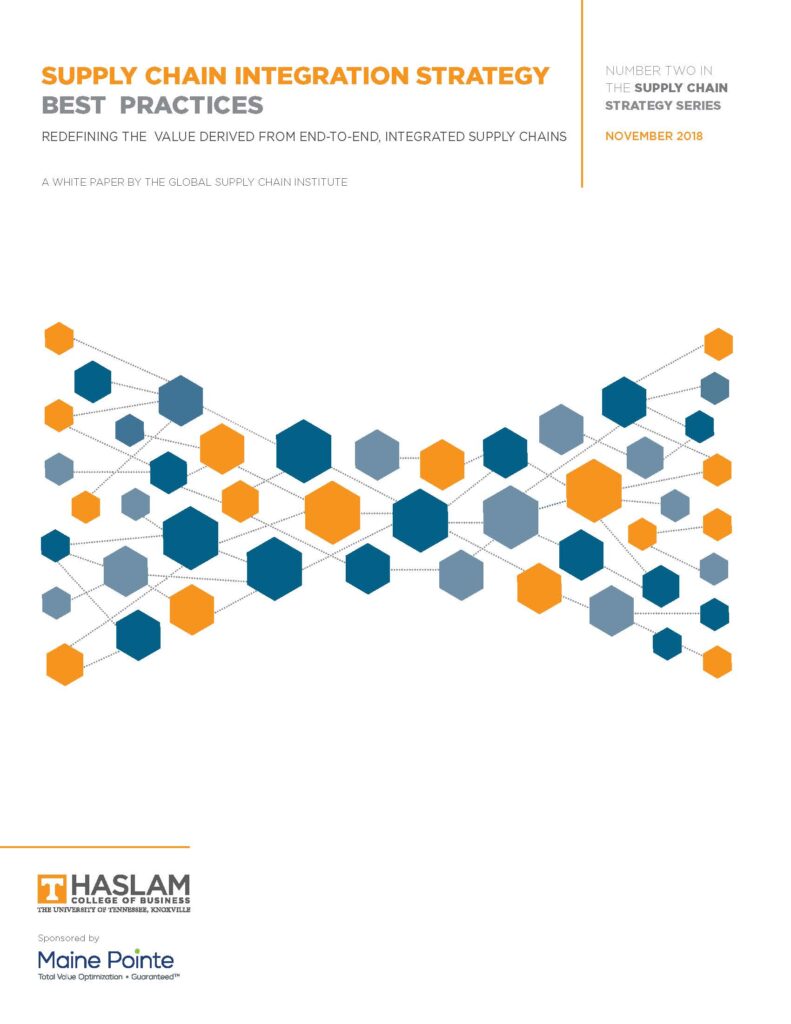
Supply Chain Best Practices: A Guide to Evaluating & Improving Your End-To-End Supply Chain Integration Strategy
Supply Chain Integration Strategy Best Practices: Redefining the Value Derived from End-to-End, Integrated Supply Chains
When supply chain best practices are in place, end-to-end supply chain integration strategies greatly benefit companies. Integrated supply chain structures create a common strategy, vision, and culture focused on increased value and improved performance. Despite the benefits of an end to end supply chain integration strategy, some supply chain leaders have yet to adopt this strategy and the supply chain best practices that come with it. And, even if they are, there remain ways to expand and further optimize their approach. Authors of this white paper interviewed people from inside 16 leading companies across eight industries to answer those exact questions. They also provide helpful definitions and concepts, integration benefits, supply chain best practices, an integration toolkit, case study, and answer six key questions supply chain leaders should be asking themselves.
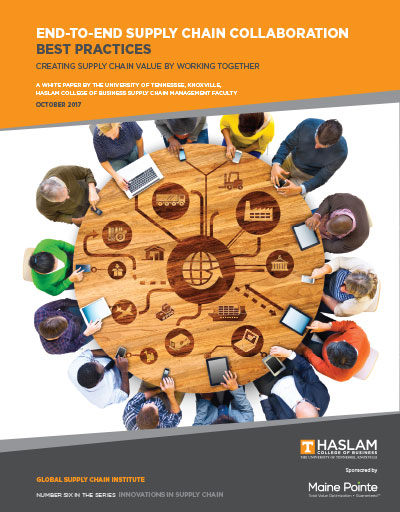
Best Practices for End-to-End Supply Chain Collaboration
Today supply chain professionals are busier than ever. Their attention is pulled in every direction they’re challenged to multi-task to achieve results. One means of lightening the load to drive innovation is supply chain collaboration. In this white paper, sponsored by SGS Maine Pointe, we share end to end supply chain collaboration best practices to help leaders improve corporate culture, value, and results.
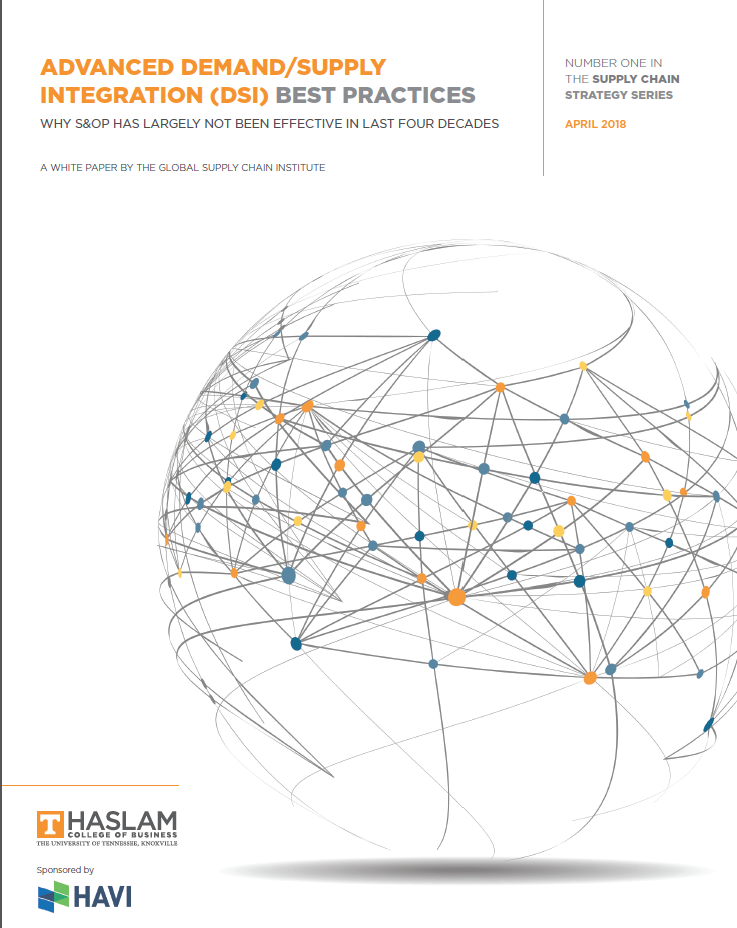
Advanced Demand/Supply Integration (DSI)
DSI Best Practices and How To Avoid Ineffective S&OP Implementations
During field interviews about demand/supply integration (DSI), GSCI researchers uncovered a friction point that required further investigation. Across 18 benchmark companies spanning several industries, and through a partnership with global DSI expert Mark Moon, they found that: 1) Supply chain leaders support and believe in DSI and dedicate time, money, and resources to DSI processes and S&OP implementation, and 2) DSI and S&OP have been largely ineffective for decades. Download this white paper to dig into the supply chain best practices we’ve unearthed for creating the right culture and rewards to ensure DSI's success.
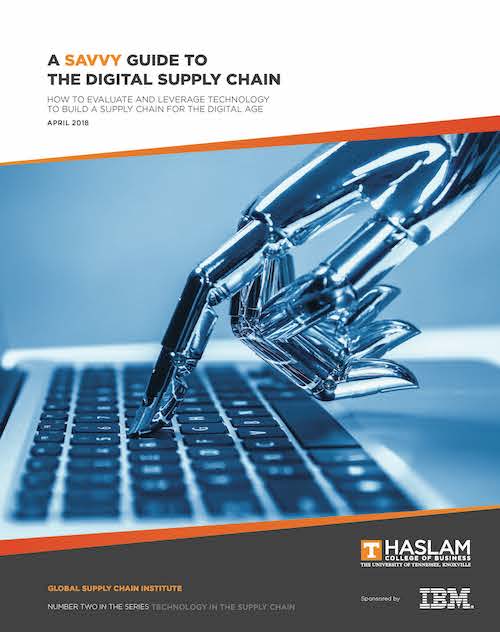
A Savvy Guide to the Digital Supply Chain
How to Navigate Technology in Supply Chain Management
Today’s supply chain leaders must be able to adapt and thrive in the face of new and constant disruptions to their organization’s supply chains. Recently, technology has been developed to mitigate the impact of these challenges. But adapting to new technologies and processes, on top of the daily tasks associated with your role, can be daunting. This white paper considers research that suggests supply chains, and the organizations that support them, are in the early stages of a digital transformation. It can serve as a guide for professionals who are evaluating and leveraging technology to build a supply chain that’s ready for the digital age.
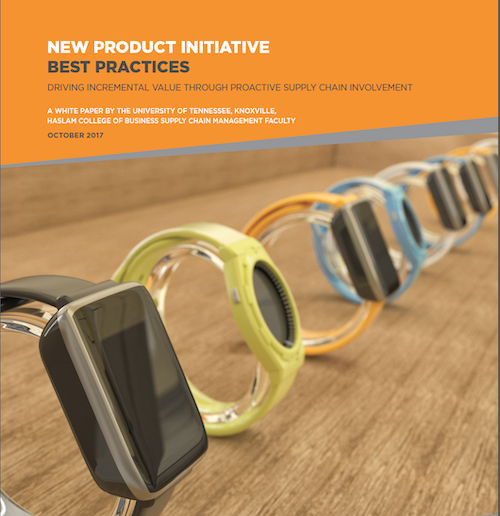
New Product Initiative Best Practices: Driving Incremental Value through Proactive Supply Chain Involvement
Driving incremental value through proactive supply chain involvement. Sponsored by Bush Brothers and Company.

New Supply Chain Technology Best Practices
The Application of New Technology in the Physical Supply Chain
Keeping up with the latest supply chain technologies can feel like a full-time job. Understanding, adopting, and integrating the growing list of modern supply chain innovations is an even greater challenge. This white paper illustrates supply chain best practices for applying new technology advances to your physical supply chain and organizational strategy. In an era of unprecedented advances, Paul Dittmann outlines an easy-to-follow, well-researched guide for navigating innovation.

Creating a Transparent Supply Chain Best Practices: How to Enhance a Sustainable Supply Chain Efforts through Transparency
How to Enhance Sustainable Supply Chain Efforts Through Transparency
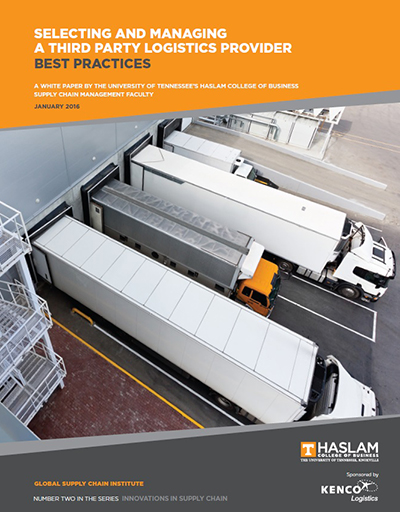
Selecting and Managing a Third-Party Logistics Provider: Best Practices
Sponsored by KENCO Logistics
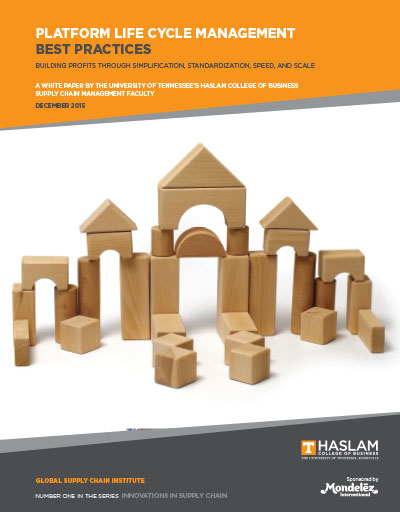
Platform Life Cycle Management Best Practices: Building Profits through Simplification, Standardization, Speed, and Scale
Sponsored by Mondelēz International
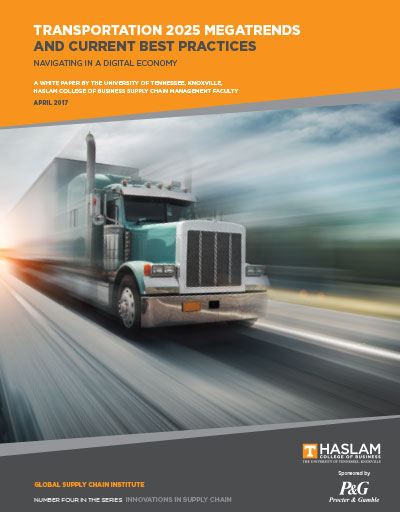
Transportation 2025 MegaTrends and Current Best Practices: Navigating in a Digital Economy
Sponsored by Proctor & Gamble.
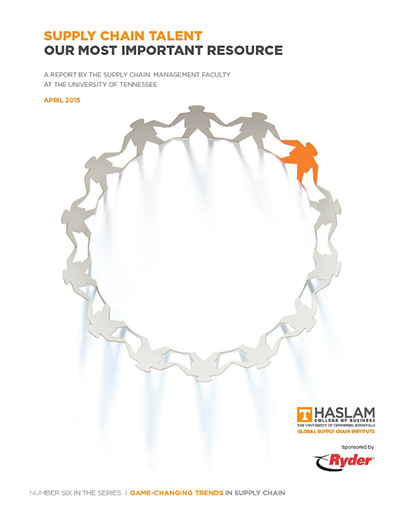
Supply Chain Talent: Our Most Important Resource
Sponsored by Ryder – A Report by the Supply Chain Management Faculty at the University of Tennessee
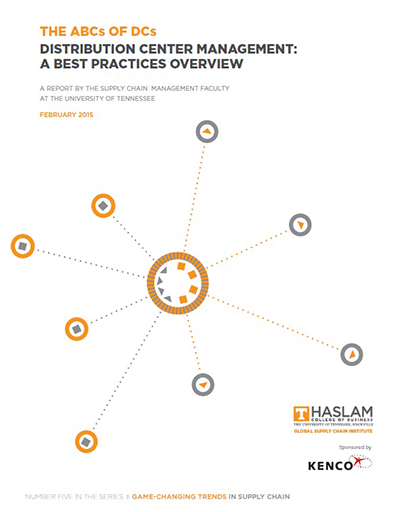
The ABCs of DCs – Distribution Center Management: A Best Practices Overview
Sponsored by Kenco – A Report by the Supply Chain Management Faculty at the University of Tennessee
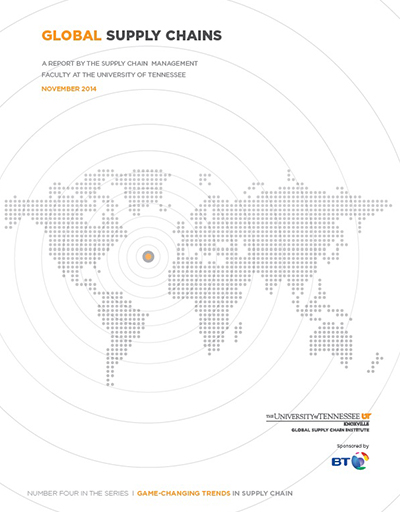
Global Supply Chains
Sponsored by BT Global – A Report by the Supply Chain Management Faculty at the University of Tennessee
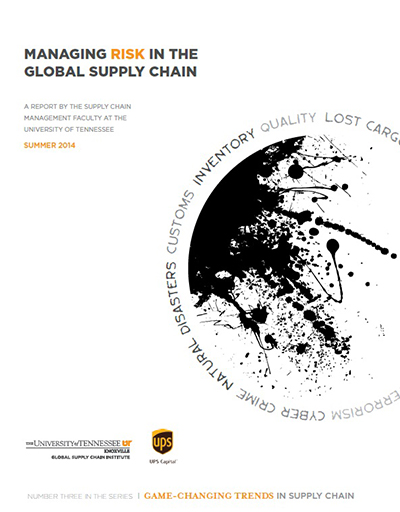
Managing Risk in the Global Supply Chain
How to Manage Supply Chain Challenges and Risk
One constant when it comes to global supply chain management is risk. Despite the many challenges companies face, executives don’t always prioritize or formalize how supply chain challenges will be resolved. Supply chain leaders must therefore prioritize risk management and enact processes to identify and mitigate risk. This is must-know information for the modern supply chain professional.
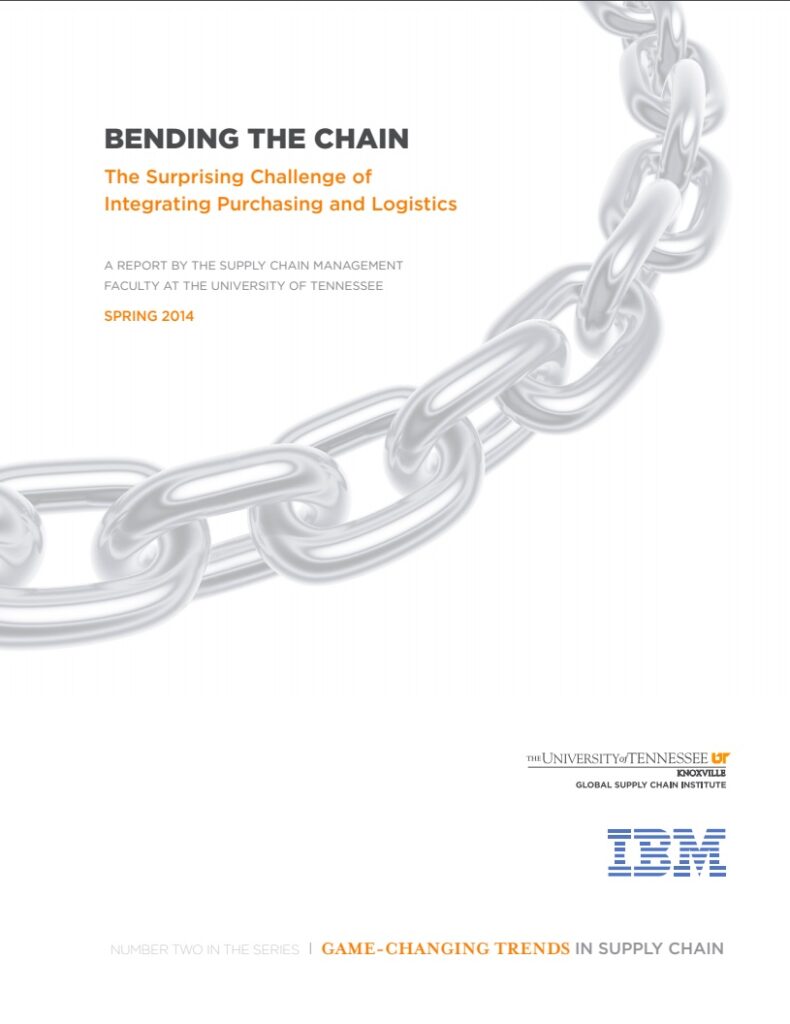
Supply Chain Management Challenges and Best Practices
How to Improve Purchasing & Logistics Supply Chain Integration in Your Organization
For decades, supply chain leaders have focused on performance issues emerging from a lack of business alignment with supply chain operations. With significant business integration improvements and systemic processes like Integrated Business Planning (IBP) and Sales and Operations Planning (S&OP), our research has uncovered a new opportunity for supply chain optimization within the traditional supply chain functions. Firms that do not align purchasing and logistics are missing an opportunity to create value. Our team worked with hundreds of companies to identify supply chain best practices your business can implement, as well as to illustrate how high performers are “bending the chain” to better align these two key functions.
